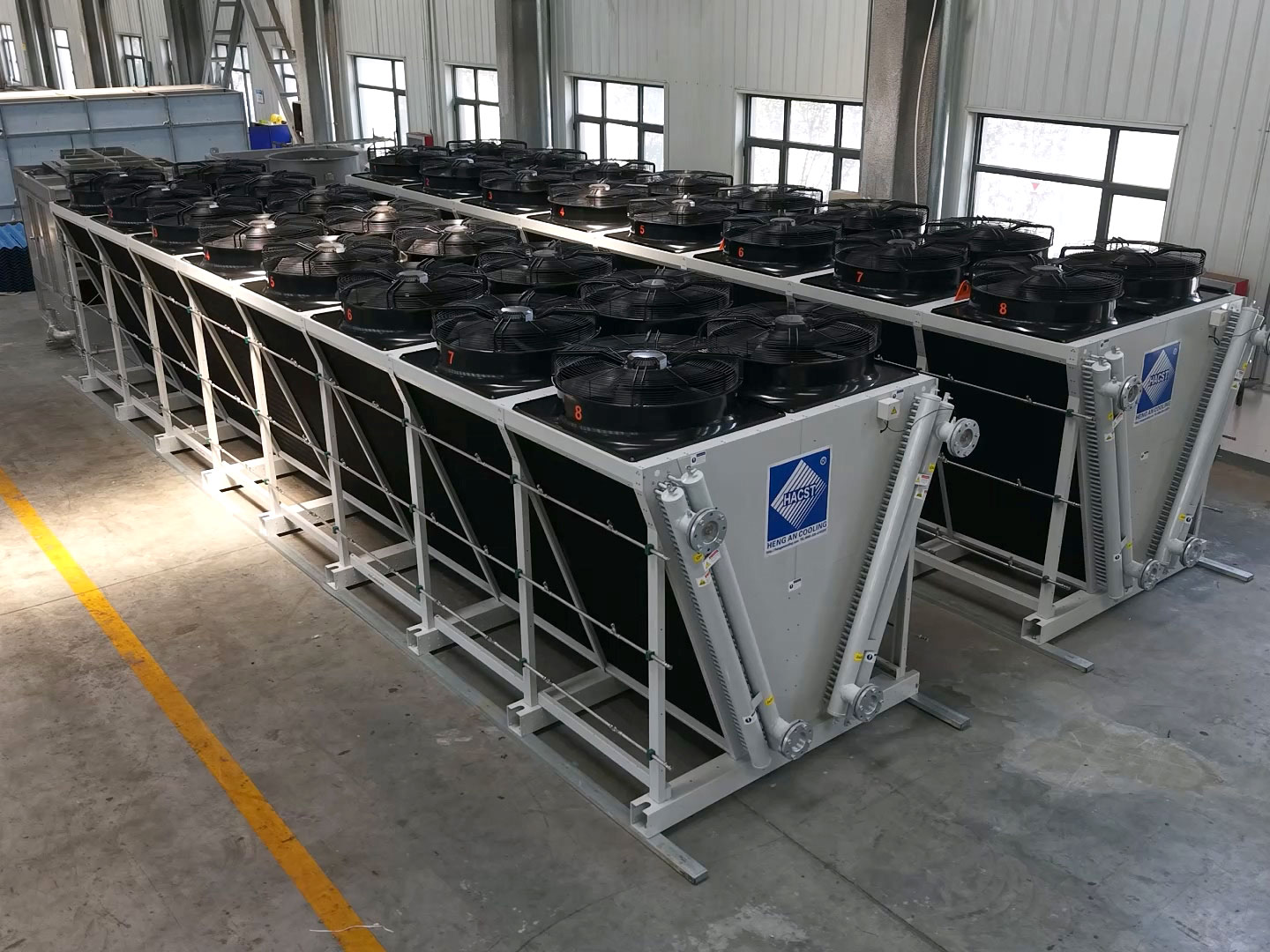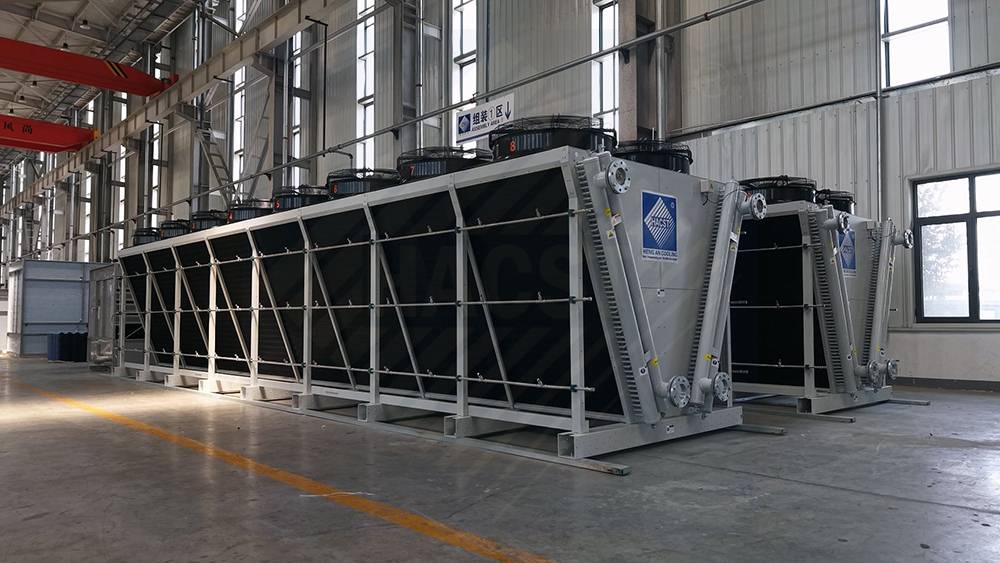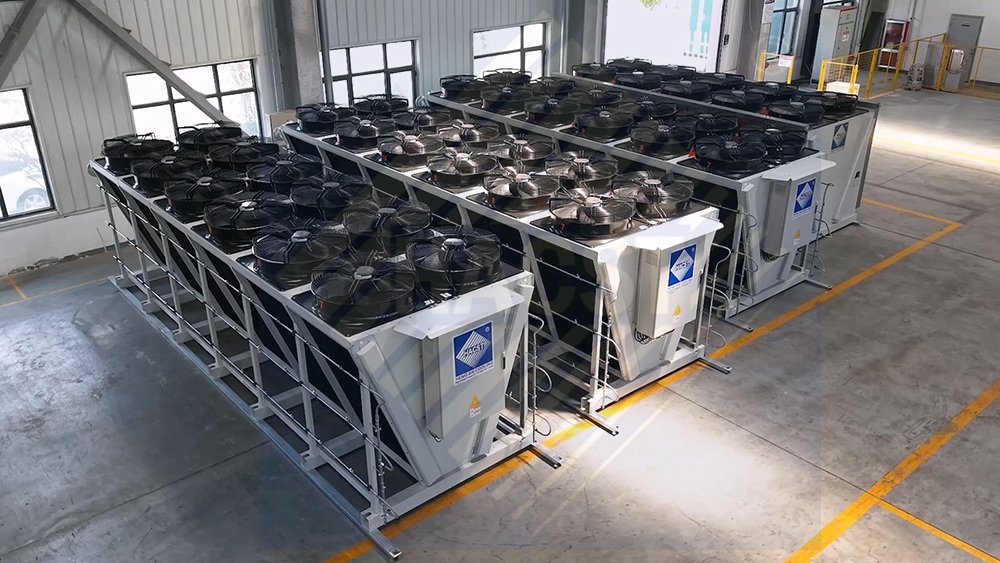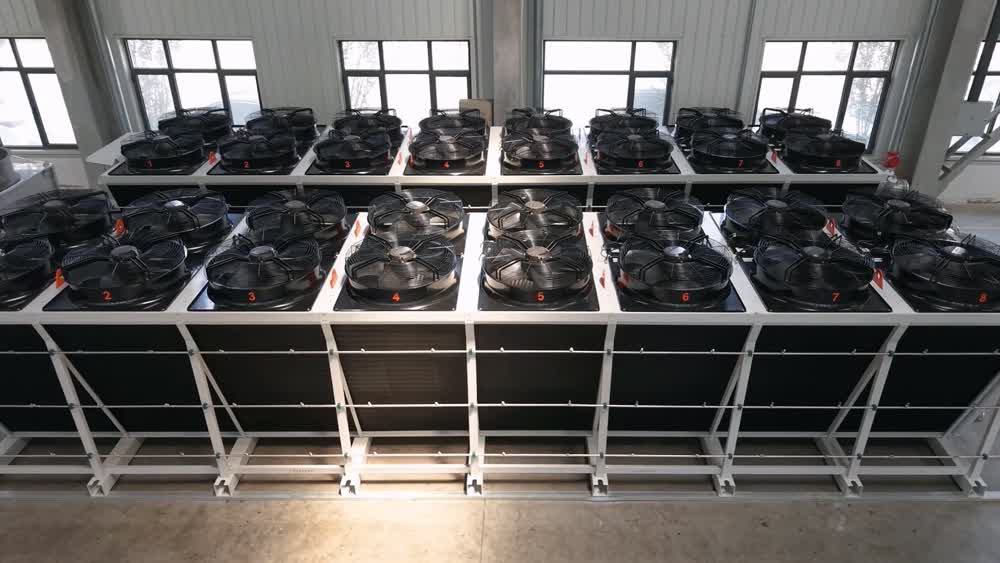guess you like
BHX Combined-Flow Closed-Circuit Cooling Tower – Scalable, Efficient, and Low-Scaling Design
BNX Counterflow Closed Circuit Cooling Tower – High-Efficiency Industrial Heat Exchanger
ZNX Counterflow Evaporative Condenser – Compact, High-Performance Heat Rejection
ZHX Combined Flow Evaporative Condenser – Enhanced Efficiency with Fill-Assisted Heat Transfer
Cooling Coil
Drift Eliminator
PVC Fill
Fan
Spray Nozzle
V-type Air Cooler
V-Type Air Cooler
Overview
The V-Type Air Cooler uses a V-shaped coil layout to enhance airflow and thermal exchange efficiency in a compact plan area. Incorporating adiabatic panels, it pre-cools ambient air, improving performance especially in high-ambient temperature scenarios.
Working Principle
Ambient air is first pre-cooled via evaporative pads (adiabatic stage), then passes through V-shaped finned coils where process fluid heat is rejected. The V geometry increases coil surface area seeing airflow and reduces air path length.
Advantages of V-Shape
- Compact footprint and efficient use of air volume.
- Enhanced heat transfer due to improved air-coil contact.
- Better performance in hot climates with adiabatic pre-cooling.
- Lower water and fan energy consumption overall.
Applications
- CO₂ transcritical refrigeration systems.
- Data center cooling in hot climates.
- High-demand HVAC applications where footprint is limited.
Selection Guide
Evaluate ambient design conditions, footprint limitation, water supply, and refrigerant type. Choose panel materials per water quality and coil material per temperature or chemical exposure.
Materials & Corrosion Protection
Use copper or stainless tubing; fins in aluminum or corrosion-resistant alloys. Adiabatic panels in PVC/PP. Consider coatings or SS in coastal or aggressive environments.
Maintenance Tips
Regularly clean adiabatic pads and coils. Inspect V joint tightness and ensure no bypass airflow. Replace pads seasonally; clean water and drain lines to avoid biofouling.
Development Trends
Future V-Type coolers will integrate hybrid dry/evaporative stages, variable fan control, and modular V blocks for scalability. Use of advanced composite materials will improve corrosion resistance and reduce weight.



